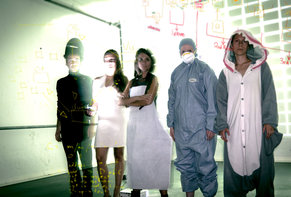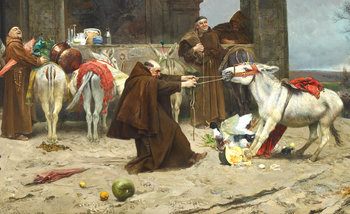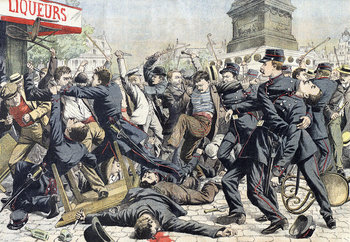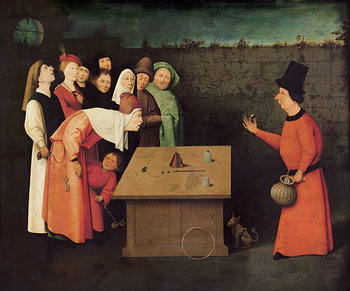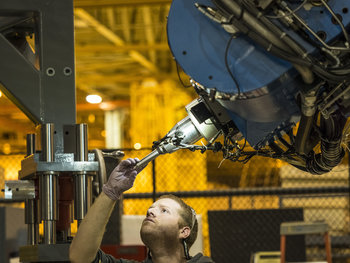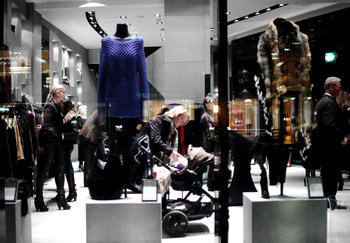
Illusion of Superiority
Believing that you are better than others while ignoring evidence that suggests this isn't true. For example, an individual who believes they are the best dancer in the world despite never having anyone compliment them on their dancing. An illusion of superiority makes it difficult to improve as you fail to see your current level of performance and results in a realistic light.Narcissism
Narcissism is an excessive level of self-admiration and a lack of empathy for others. This is associated with shamelessness, magical thinking, arrogance, envy, a sense of entitlement and exploitation of others. The term originates with an ancient Greek myth about a hunter named Narcissus who was obsessed with his physical appearance and had disdain for all who loved him. According to the myth, Nemesis lured Narcissus to a pool where he saw his own reflection. He was unable to leave the pool and died there because he became entranced with his own image.Corporate Narcissism
Corporate narcissism is an organizational culture that is self-obsessed. This is characterized by a lack of respect for customers, competition and regulators that can lead to the complete downfall of a firm. Corporate narcissism fails to punish internal failure, respect customers, respond to competitive threats or take laws and regulations seriously. A firm suffering from corporate narcissism may completely ignore changing economics and societal values by believing the world is wrong and the firm is right.Gloating
The ancient Greeks strongly associated hubris with gloating after victory in an attempt to humiliate the defeated. More generally, hubris was associated with using one's superiority to mistreat others. This was viewed as a challenge to the gods.Big Wheel at the Cracker Factory
Big wheel at the cracker factory is a metaphor for an individual who is excessively proud of a small amount of authority. This can prevent an individual from progressing to greater things as they are incredibly self-satisfied with their current powers.Petty Authority
Petty authority is the misuse of authority to justify unreasonable, cruel, unfriendly or arrogant behavior. The term is associated with individuals who expand their authority to humiliate others to enjoy a sense of power. Petty authority occurs where there is no oversight of authority. For example, a government agency that doesn't provide an easy-to-access complaints process that results in disciplinary actions for poor behavior.Elitism
The feeling that a particular group is superior to others. For example, a firm that only recruits individuals from ivy league schools that is blind to talent outside of this elite. An elite may ignore due diligence, stakeholder needs, competition, changing values and external threats due to an exaggerated sense of ability, status and entitlement. This can lead to the complete downfall of a society, organization or group.Groupthink
Excessive confidence in the ideology of a group to the exclusion of rational thought and open debate. This can occur at the level of a society, organization, culture, subculture or social group. Groupthink can lead to an irrational sense of self-righteousness whereby groups or individuals believe they are the sole purveyors of truth and anyone who disagrees is irrational, unintelligent or evil.Icarus Complex
An icarus complex is a tendency to be overambitious. This is characterized by extreme optimism and a lack of responsible planning whereby opportunities are overestimated and risks underestimated. Icarus is another figure of Greek mythology who was given wings by his father and told to follow his father's path not too close to the sea and not too high in the sky. Icarus was optimistic and impetuous and ignored his fathers advice by flying too close to the sun. His wings melted and he crashed into the sea to his end.Sour Grapes
Sour grapes is a type of conservative and pessimistic hubris whereby an individual decides that anything they don't have or can't obtain is worthless. For example, an individual is scared of flying so they simply assume that flying and travel are worthless. This can be considered hubris because it is foolish overconfidence to define the worth of things by your ability to obtain them.Dunning Kruger Effect
The Dunning Kruger effect is a tendency for people of low ability to view themselves as superior. This is due to a failure to comprehend the depth of a domain. For example, an individual who picks up drum sticks for the first time and hits three beats that sound something like music rates themselves as 9/10 as a drummer. This might be compared to someone who has taken drum lessons for 7 years, practiced for thousands of hours and performed in front of hundreds of audiences who only rates themselves as 7/10 due to their full comprehension of what it truly takes to be a great drummer.Magical Technology
A tendency for people to view technology as magic such that they are overconfident in its capabilities. This tends to occur when individuals understand a trendy technology only in a superficial way such that they fail to grasp challenges, costs, limitations and risks.Regression Fallacy
The regression fallacy is a failure to account for natural variations. This is a common source of hubris as an individual may take credit for things that were simply luck. For example, an entrepreneur who gets into a particular business just as it begins to grow at an incredibly fast pace may believe that they have a brilliant mind and could pull off the same results again. In reality, their success may have been mostly good fortune and their abilities and insights may be average for an entrepreneur. Hubris and luck are often related as people may fail to have gratitude for their good fortune but instead thank themselves for being so superior and wonderful. The Greek goddess Nemesis who was believed to be responsible for punishing hubris was also thought to punish mortals for simply being too lucky.| Overview: Hubris | ||
Type | ||
Definition | Foolish overconfidence. | |
Related Concepts | ||







